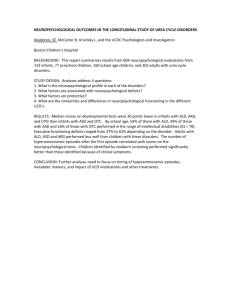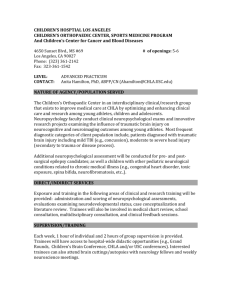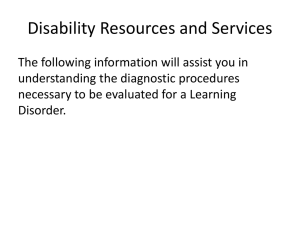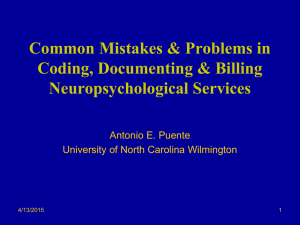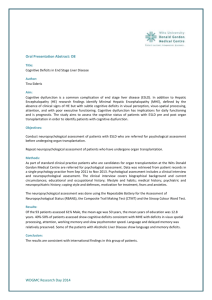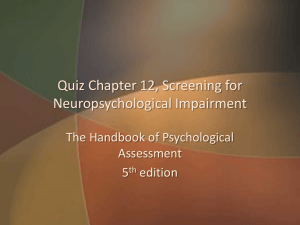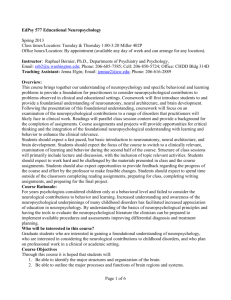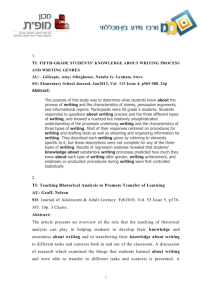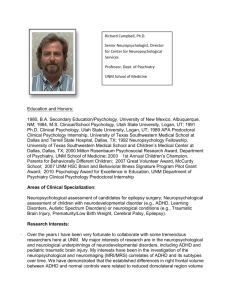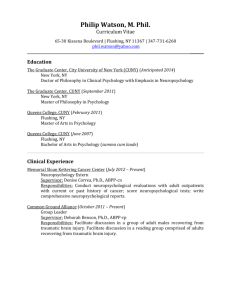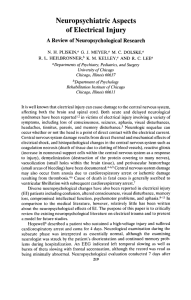Neuropsychological Issues in Fetal Alcohol Syndrome
advertisement
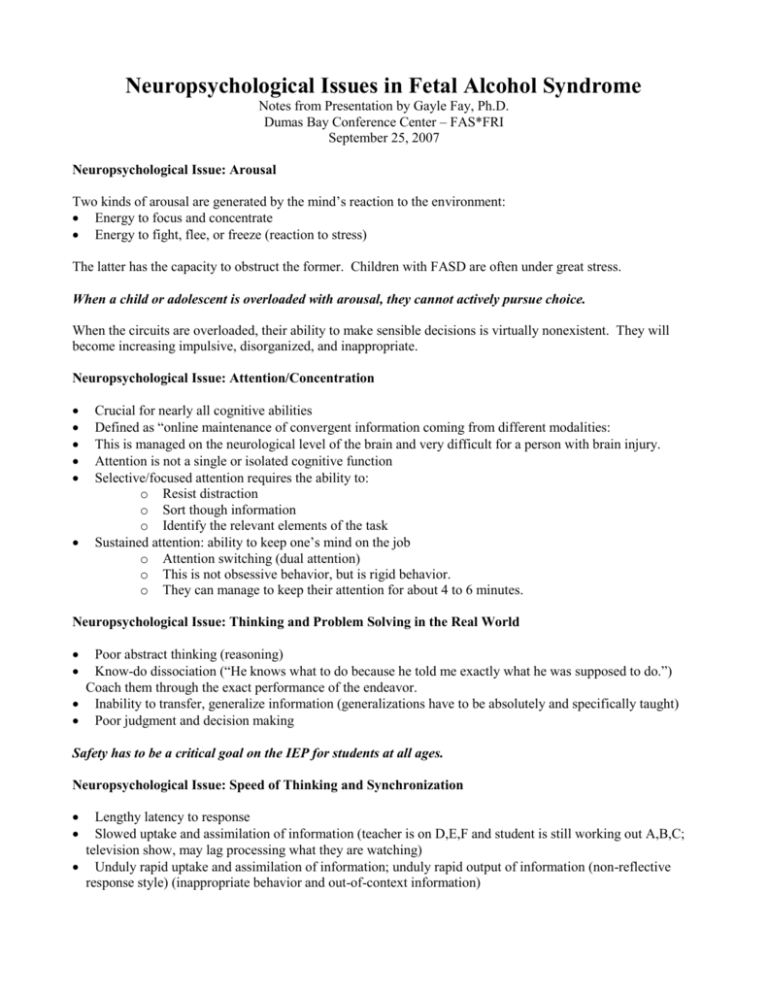
Neuropsychological Issues in Fetal Alcohol Syndrome Notes from Presentation by Gayle Fay, Ph.D. Dumas Bay Conference Center – FAS*FRI September 25, 2007 Neuropsychological Issue: Arousal Two kinds of arousal are generated by the mind’s reaction to the environment: Energy to focus and concentrate Energy to fight, flee, or freeze (reaction to stress) The latter has the capacity to obstruct the former. Children with FASD are often under great stress. When a child or adolescent is overloaded with arousal, they cannot actively pursue choice. When the circuits are overloaded, their ability to make sensible decisions is virtually nonexistent. They will become increasing impulsive, disorganized, and inappropriate. Neuropsychological Issue: Attention/Concentration Crucial for nearly all cognitive abilities Defined as “online maintenance of convergent information coming from different modalities: This is managed on the neurological level of the brain and very difficult for a person with brain injury. Attention is not a single or isolated cognitive function Selective/focused attention requires the ability to: o Resist distraction o Sort though information o Identify the relevant elements of the task Sustained attention: ability to keep one’s mind on the job o Attention switching (dual attention) o This is not obsessive behavior, but is rigid behavior. o They can manage to keep their attention for about 4 to 6 minutes. Neuropsychological Issue: Thinking and Problem Solving in the Real World Poor abstract thinking (reasoning) Know-do dissociation (“He knows what to do because he told me exactly what he was supposed to do.”) Coach them through the exact performance of the endeavor. Inability to transfer, generalize information (generalizations have to be absolutely and specifically taught) Poor judgment and decision making Safety has to be a critical goal on the IEP for students at all ages. Neuropsychological Issue: Speed of Thinking and Synchronization Lengthy latency to response Slowed uptake and assimilation of information (teacher is on D,E,F and student is still working out A,B,C; television show, may lag processing what they are watching) Unduly rapid uptake and assimilation of information; unduly rapid output of information (non-reflective response style) (inappropriate behavior and out-of-context information) Neuropsychological Issue: Self Regulation Biological: Inability to regulate arousal (neurofeedback helps them learn to modulate arousal, at least gives them an idea of what a stable arousal state feels like) Neuropsychological Issue: Self Regulation – Behavioral Impaired monitoring of behavior (reality testing) Excessively bound by environment cues (cannot think beyond the situation, therefore easily manipulated) Distorted internal models of past, present, and future environments (cannot draw on prior experience) They can be coached by specific, nonjudgmental cues to respond appropriately. Neuropsychological Issue: Speech Language Skills Impaired auditory processing Issues with retrieval and elaboration o Use fewer words o Use phrases instead of sentences o Reduced content Neuropsychological Issue: Memory Inextricably intertwined with arousal, attention, cognition, and emotion Systems: episodic, visual, verbal, procedural (memory for rules and algorithms) Neuropsychological Issue: Working Memory Manipulation of online information Relate information to experiential base Ability to reorganize mental context Neuropsychological Issue: Thinking Flexibly Cannot shift focus between external events or between external events and internal representation Results in perseveration (repetitive responses) (hyper-arousal from stress = stuck) Behaviors we see are neurological, not psychological Neuropsychological Issue: Physical/Mental Endurance High levels of arousal, challenge, and anxiety sap physical and mental endurance Many FAS children show heightened levels of hyperactivity when endurance is low Neuropsychological Issue: Social Pragmatics/Social Communication Requires superb executive and information processing skills (recognition of subtle social cues). Not impossible, but needs to be embedded into their neurological program from an early age.
